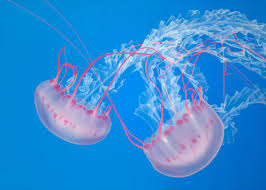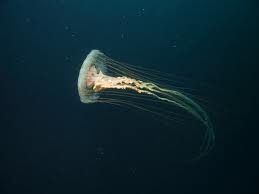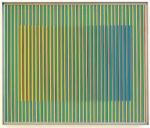Concert Review: Prince in Chicago!
June 30, 2013 § 2 Comments
(Full disclosure: I wasn’t actually there at The Aforementioned Concert. I had to contribute to The Greater Good fulfilling my civic contract tonight by bartending.)
But aren’t you just so happy to live in a world in which this concert happened? It seems we must obviously live in Utopia to know that this is even within the realm of possibilities.
Imagine waking up one morning and living a totally mundane, kinda overcast day meandering Wicker Park only to find out sometime around dusk that you’re going to see fucking Prince play in an intimate setting that very same night.That’s like the ultimate potential of Life On Earth fulfilled – like I kinda can’t even believe that I know some people that that happened to. That guy has his bodyguards scope out some empty-looking cafe with flaky hummus plates in downtown Minneapolis on some weekday afternoon to make sure the coast is clear for him to pull down his string bikini and carefully take a shit with his cape on in a public men’s room – and – He is the only human in the entire deep toppling history of Life On Earth that it’s COOL for him to play City Fucking Winery. In fact, that’s actually IMPOSSIBLE to do – be a musician and play a place that some committee actually all agreed to purposefully christen “City Fucking Winery” – and it’s cool to play there?! Only Prince.
I say the concert was a better concert than all of the other concerts that I hear about and don’t go to!
and he’s done it and some people we all know were there. It’s kinda amazing. I’m not even jealous. It’s like too much for
I Want You to Understand How I Feel
April 2, 2013 § Leave a comment
Roger Clinton
March 19, 2013 § 3 Comments
Thank You, A Class, And A Book
November 16, 2012 § 8 Comments
THANK YOU
First of all I’d like to thank all the hosts and all of the people that came out for my living room shows. That was a very exciting 10 days for me. I’ve confirmed that my predisposition for anxiety is by no means improved by traveling alone – I was hoarding gas and non-perishables and water, convinced that a party at Olive Garden was staring me down.
But those shows were really such a pleasure to play. I hope if you came out to one that you enjoyed it as much as I did. Thanks to Adam in Westland, MI; Jessica and her folks in Akron; Stephen in Rochester; Kevin in Boston; Natasha in Williamsburg; Eric in Flatbush; Maeve and Jake in Philadelphia; Jared in Baltimore; and Tara in Pittsburgh. It was very kind and generous of each of you to open your homes to me and my people.
A CLASS
And now that I’m home for a little while I’m preparing for a class I’ll be teaching this spring at The University of Chicago’s Graham School of Continuing Education.
If anyone in Chicago would like to spend 4 weeks workshopping your Experimental Fiction with me, please sign up. It’s Thursday nights, February 14 – March 7. It’s open registration and details for enrollment are here:
https://grahamschoolapp.uchicago.edu/offering.php?oi=6454
AND A BOOK
And finally, still sorting out the potential release of my second novel Let Go and Go On and On – an endless and soul-crushing process which will hopefully all fall into place soon (fingers crossed.) But in the meantime, I think it’s safe to announce a different book forthcoming in 2013 – All Over and Over: Make Believe Tour Diaries, 2006. A shocking expose indeed into the lives of four grown men living all wrong. Details soon.
Coffin Pricks
September 17, 2012 § Leave a comment
I interviewed Ryan Weinstein and Chris Thomson of Coffin Pricks last fall for Maximum Rock ‘n Roll. I guess it never ended up running, so here is the complete conversation. Thanks to John Lombardo for the epic undertaking of transcribing this whole thing. Photos courtesy of Ryan – I don’t know the photo credits more than that.
TK: There’s one issue of MRR that I think about probably once a week for the last 7-10 years. In 1992 they had a special issue called the “Punks over 30” issue. You guys remember this? I was an avid reader from ’89-’92, but there was a “Punks over 30” issue and I couldn’t imagine being over 30 and being a punk. So I wanna ask you guys about being punks over 30. I mean what does it mean to start a band at this point?
CT: Well, I think what’s interesting for me. Is that when I do the math, I’m kinda working on close to 30 years, well no 25, 20 at least… as a performer. So it’s kinda weird. I think numbers are a weird thing and I think if I was paying attention to numbers and age and what I should be doing then I’d probably be in a mental institution. So, this is an opportunity to continue to explore music and maybe that’s a cop-out to say, but that’s…
RW: I feel like it’s completely irrelevant. It must be relevant in terms of experience. In terms of what you can do. And everything you’ve done wrong through all the years. I personally feel like I have as much energy and interest as I did when I started. Probably more so now because I feel like I have a better grip on my ideas. I don’t feel…I think maybe my back hurts sometimes.
TK: But there’s expectations of starting a band. When you’re like 19 or 25 or something and you can all be like “what’s the big deal? We’re gonna live in this van for six weeks.” And the band is the center of your life. And everything else – relationships, jobs, whatever, they’re all fit-in around the band. So those sorts of expectations must change.
RW: They do. I would say yeah that aspect, like the idea of being a functioning entity that works all the time is kinda like this thing that’s sorta dangling in front of you and it’s way more difficult to be that, then maybe you were then. I don’t know, that’s really tough to answer because I haven’t really led this straight life that I’ve had to get away from all that often, so maybe I’m the wrong person to ask.
CT: Maybe to me, music is like this ugly girlfriend that you call every now and again to get with. And now, I’m kinda realizing the importance of that relationship and that it is important. What I like most about this band is I think that there is a better foundation and I can just do what I wanna do in the band.
TK: What’s foundation? You mean technically?
CT: Yeah, there’s kind of a band in place. Ryan is the musical generator and Chay and Jeff are rock-solid. So it’s not like we go in and it’s like “ok, what are we gonna do? Who’s gonna write the songs?” I do feel like I’ve been in bands where people are kinda looking to me to be like “Ok, tell me what to do.” And I don’t really succeed in those situations.
TK: Right, but now that you’re saying there’s a foundation, you’re free to do your own thing.
CT: I’m free to kinda focus on just what I can bring to it and hopefully take the lessons I’ve learned and be a little more efficient at it.
TK: Right, well it’s funny that you say that you appreciate it like an ugly girlfriend, which I don’t even want to get into what it means to appreciate the ugly girlfriend, but it’s a deeper and different satisfaction? However weird my bands might have been when I was 23, there was still always in the back of my mind “and we’ll be the next David Bowie” you know? Or you know “people are gonna love this.” But then once you get realistic about doing it is its own satisfaction, then the satisfaction becomes more immediate.
CT: I mean definitely when I was younger, I was foolishly caught up in comparing myself to friends’ bands. And I’ve had a lot of friends that had great “success” and always was kinda longing for that and then realizing that maybe that isn’t the be-all end-all and that it’s more like “you know what, I just gotta do my own thing.” And you know that’s the satisfaction for me – growing as a singer and as a lyricist.
TK: It’s funny. We’re basically saying the basic lessons of punk rock. But it started from the question of the “Punks over 30?” (MRR) issue. And it’s so funny that you take these things in as a kid when you’re starting this stuff, but it doesn’t really get meaningful until much later when you’re like “Oh, this really is it and this is the satisfaction.”
RW: Well, you know it’s strange. The only thing I can say where age comes into play is that I have a definite different degree of satisfaction that I get from playing. That means something totally different.
TK: What is it compared to what it used to be?
RW: It used to be…maybe part of it was like the thrill of being seen or something – Or the thrill of actually just being somebody in a band. Where now I feel like my complete goal is just personal satisfaction always, in terms of some internal feeling.
TK: This is something I come across. I have a very regimented schedule and at like 1:00 every afternoon I come up against this issue: Is each new song – because you’ve both written so many songs at this point, both of you in many different contexts – so is each new song harder to write or easier? Is it simpler because you’re like “I’ve done this a million times, I know how to begin” or does it get tougher, because you keep throwing stuff away because you’re like “I’ve already done that”.
RW: Well, I think it gets tougher because you constantly want . . . I’m not afraid of repeating myself. In fact, I’m a huge advocate of people that have a thing that they do really, really well. But I think with the music and stuff, it’s maybe different in this band because I’m writing mostly to the strengths of the people I’m playing with. I’m writing things that I want Chris to sing on. I’m writing things that I want Jeff to play drums on. And that’s how the whole band started. So it feels like it’s more of a challenge against itself more than the thought of something that I’ve done before or might do later.
TK: Do you have an idea about that, lyrically?
CT: Ryan is very prolific and we’re generating songs like crazy. Which, I think is a very good thing. And it’s almost that fear of like – it’s kinda cliché’, but staring at the blank page and being like “Oh fuck, what am I gonna do this time?” And in some ways, it’s easy to get caught up in the angst of “Oh fuck, I gotta write these brilliant lyrics for this song.” And then in other ways, it’s like, “You’ve done this before. You know how to do it. Maybe that should be a starting ground”. Because it’s kinda like about recognizing gifts, I think. And maybe that’s where I’m coming to this band. There are times I’ve attempted to write really creative songs with creative lyrics and I think what I’ve realized my own talent is – it’s screaming to loud songs. And basically, you can play me a loud song and I can figure something out pretty quick.
TK: It’s like negotiating that ratio of the fear of “I need to out-do myself” and the confidence of “Oh, I know how to do this.”
CT: Yeah, also just getting something going. I kinda think of it as whoever’s gonna listen to us isn’t gonna listen to whatever my genius vision of a song is. The person who’s listening to us, they just need some lyrics to live within the song. And I’m not saying that as a copout.
TK: No, no, it makes perfect sense.
CT: It’s like when you watch a movie, you want action and dialogue. You gotta have something to latch on to. And if you’re just kinda like in the air trying to figure out too clever lyrics or obtuse – which I would really like to write obtuse lyrics – but there’s nothing for people to really latch on to. So now, I’m just kinda trying to go with it and be a little more immediate and not over-thought. You know, in some ways, things work out that way; spontaneity, you know?
RW: Also, the whole idea for the band at its inception was to be just this completely direct thing. And maybe that was kind of a challenge too, because a lot of the time you find yourself trying to fight against the simplicity of something. You know you feel like you wanna tap into something more esoteric and you feel self-conscious about doing something that is just super direct and super simple. And maybe that also goes back to the original idea that we should have some level of sophistication, after all we’ve done, or something. But I don’t think it’s any less sophisticated, it’s just getting deeply into something direct.
TK: Your two answers lead me to two different strains. Having been the bass player for a minute (note: I played bass for the first few Coffin Pricks practices before scheduling conflicts made me duck out), and having seen the process from the inside, I have a sense that the music comes together and that the lyrics are sorta put on top. Right? As opposed to maybe Andrew Bird writes songs where he’s like “Oh, I whistled this to myself and now how shall I accompany it?” But you were sorta using “lyrics” and “singing” as synonyms earlier. So how do you see the relationship between the two? Like is melody something you’re aware of? I think of hip-hop a lot because I have some sort of allergy to melody, so I’m always thinking of cadence. How do you think of melody versus lyrics? Which comes first?
CT: I think they kinda exist together. I don’t see them as separate things. But I get what you’re saying, because I think cadence has a lot to do with, you know, making things interesting. I think when you talk about cadence, and I’ve relied on that before in other bands, it’s almost turning the vocals into its own instrument to a certain extent. Where it’s accenting what’s going on in the music. Sometimes it weirdly goes along, sometimes it doesn’t.
TK: Right, which creates a tension when you’re pulling away from it.
CT: Yeah. I guess going back to Ryan – I’m kinda into the idea of just making it simple and not over-thinking it and kinda relying on melody. It’s weird. I got into punk rock music, like a lot of people, and The Ramones are definitely a keystone. They’re a big part of my early transformation. And then I had a lot of friends who got into The Ramones later and I was always like ‘Aw man, who the fuck cares about the Ramones? They’re so simple,’ to a certain extent. ‘They’re so juvenile’ – Not juvenile, but there’s a certain simplicity to it and I guess what I’m getting at is, just like within this band, like kinda relying on some of those tricks in terms of adding melody. I really like the way The Ramones were able to add melody to some of the initial punk rock bands and I think if you read the lyrics by themselves, you’re like ‘Oh this is kinda silly,’ but then they work with the lyrics. I guess what I’m getting at is – what I’m gravitating towards or what I’ve discovered – that what I appreciate is that there’s just a certain honesty. In my new-found appreciation for The Ramones . . .
TK: You’re going through a phase right now?
CT: Well, no I wouldn’t say that. But I think it always plays on my mind. Just that the singer can be just…that’s the way they’re able to communicate. There’s something very honest and genuine and almost emotionally retarded.
TK: Well, when you say The Ramones are boring to you at a certain point because it’s simple, something like The Scissor Girls were equally as simple in terms of manual dexterity. So the simplicity of The Ramones isn’t like ‘Oh that’s hard to play’ or not. It comes across more as like emotional simplicity? Cause there’s not like tension in the music?
RW: Well, yeah cause it’s not really about the people who are playing it. Not to say that there’s not some…everybody’s personality is intact fully. But I think that there’s a distinction to be made there.
TK: That leads to two things I don’t know how to phrase as questions. There’s personal versus tradition or community, right? So, saying that The Ramones weren’t supposed to express themselves implies that we’re supposed to express the next step in like how this folk-form is expressive. So are you guys more aware of expressing yourselves personally or more aware of, well I’ll use two words that I mean differently: community or tradition. Right? Cause there’s a way to be in a band when you’re young where it’s like ‘Oh, we feel part of a gang. This is about a community. This is about being part of a scene.’ Or there’s a way to be like ‘This is personally gratifying because it’s about being part of a tradition.’
RW: More the latter than the former, but neither in a way – The former being the personal expression, the latter being the community. I think it’s really interesting because I don’t really see – at least in our immediate thing – that we really have a place. So it’s a different thing for us.
TK: Have a place where?
RW: In the music community.
TK: Chicago or in general?
RW: Chicago, especially. That doesn’t mean we aren’t being accepted. It just means that we don’t have an easy place to fit. I think things right now are super fucked-up because we’re in this hyper-regimented, uniform music world where you have to play with bands that sound like your band, otherwise people feel weird about putting you on a gig. And if you don’t have reverb on all of your vocals, somehow you’re not accepted by this group of people that loves to douse everything with reverb. Also, the thing with the band is we have a different kind of thing where we don’t really spend a lot of time together. We’re all friends and everything, but it’s sorta neither really in that way. Definitely writing the music is some expression of something that’s going on inside of my mind and my body, but I don’t really know what it’s supposed to mean. I know that honestly, I just wanted the band to have a simple, powerful sound. I don’t know what that means to me at this point.
TK: There’s this term “negative capacity” that people use in art school a lot that I think about a lot. It means like being able to be comfortable not understanding something for a long time. I feel like that’s what you’re talking about. And I get obsessed with how long can I sit with this thing and not know what’s good or bad about it.
RW: Well, I think that for us, we’ve never really had a lull where we weren’t writing something. And I think if maybe we get to a point where we have a full LP out and we’ve done more, maybe then some kind of understanding will come to us. But I think at this point we’re just playing, playing, playing, playing. There’s not much that we do that doesn’t stick somehow. So it’s kinda hard to tell what any of it is. But it’s not like some flummoxing fucking thing that we can’t grasp. It just seems like maybe we don’t spend a lot of time stopping and thinking about it. I know that I don’t (think) when I write music. It’s just like “What can I hear that I think will work well for us?”
TK: Do you have any idea of this personal vs. community, personal vs. tradition, Chris?
CT: I think just by virtue of who we are and our roots, I think we’re just coming to this punk as a folk concept of amateur musicians expressing something. And being true to ourselves, I think that’s kinda like the avenue we’re following. In terms of personal expression, I think the songs are at least for me about, you know, frustrations and things that everybody can relate to.
TK: Yeah, well, there’s a way in which all of us can just take the folk form of punk as a given, so then personal expression is just accepting ‘Well I fit it within this folk form.’ But Ryan, you’re saying how you don’t feel like there’s a comfortable spot for your band to fit in, in the Chicago music scene. And we all know there are certain codes of rebellion and I wonder what you guys think about that. Codes of rebellion versus rebellion itself, I mean, because there is something viscerally shocking about aggressive music. Like I’m really in the habit of listening to music on shuffle, which has been a real epiphany to me – to not choose what I’m going to listen to, but just hit shuffle when I get on the bus. And sometimes a Bad Brains song that I might have heard a hundred million times over 25 years, I’ll hear and be like “Holy shit! These guys are pissed!” You know? So there’s a way in which we read all that as like a code, but how do those codes work into playing aggressive music? Because like you said, you play with bands like Joan of Arc or Cairo Gang or Eleventh Dream Day or whoever I’ve seen you guys with and it is the same way that Bad Brains hits me on shuffle.
RW: For me, when I came up with the idea of the band, maybe in that sense it was sort of a rebellion to what was happening around us, because I wanted to do something that didn’t sound like anything anybody else was doing. And I’m not saying that we’re doing something that has no foundation, but it was an overt reaction to what was going on. I felt like there was a lot that was going on that seemed like it didn’t have a sense of real urgency or purpose. I can’t define that for anybody. I can just say it for us. The reason I wanted to do this music was I knew that I wanted to do something that was direct and completely purposeful all the time. And so in that respect, I would say that the band itself is a direct response to everything that’s going on around us – Everything going around us in the music community. I think obviously, subconsciously, I’m a pretty critical person I guess you could say. So I think that through my own sorta criticism of things that I didn’t place on a level of value or interest, something clicked in my brain; something clicked, ‘this is what I need to do.’ Something that really bothers me is when I start reading things about us like “The throwback punks . . .” I think what we’re doing is totally fucking relevant now. It’s not like a bunch of older guys getting together and listening to their old records and playing music. It’s not even about that. So it’s kinda like a jumbled idea, I guess in that way, you know? It’s coming from a bunch of different places. I knew it would be responded to that way, even from the first gig that we did. It was like ‘Yeah, but you guys are like some all-star band, guys that were in other bands. You should headline your first show.’ And I was like ‘Why would we do that? We’re just a band. That’s just starting to play.’ It would be really easy to be like ‘we’ve done all this stuff so we’ve got some cache’ or ‘we’ve got something,’ but it’s not even about that. Maybe in that way, almost everything annoys me.
CT: I don’t know if I’m gonna take the conversation on a different tangent, but I was just thinking about when I first started listening to bands and seeing shows and stuff – to me what was most exciting was just the element that anything could happen and often times, it did. It was more about the performance. It was about the energy that you saw and I kinda feel like because I think when punk started everyone was sloppy musicians and over time the newer kids coming to it came with more skills, better equipment. And not to pigeonhole Chicago, but I think there’s some incredible players and there’s incredible people doing music. It almost seems like everybody going to see shows now relates it to ‘Oh, what an incredible performance!’ or how this performance sounded exactly like the record and all that kind of stuff and so I think – and maybe for me, what excited me was more about the performance and that sort of thing.
TK: That comes back to an issue of being punks over 30, right? To bring it back to MRR. When you’re 18 or 20 and you start a band that plays aggressive music – I’m just gonna use that term, “aggressive music.” It’s like you’re comfortable being pissed at everything and you can’t say what it is, but you just know that you’re pissed at everything. But as an adult you can’t help but notice ‘there’s a world I’m responding to.’ Maybe this has to do with deepening a connection to a folk form. I guess I’m wondering how much is consciously political – in the most expansive sense of the term. How much is an adult’s sophisticated understanding of the world compared to the immediate impulse of a younger person’s anger? Is that a fair question? Does that make sense?
CT: No, that doesn’t make sense. I mean . . .
RW: I kinda see where you’re going with it, but . . .
TK: I’ve never been able to get into bands that have very explicit political anger that’s set in the immediate or has some sloganeering like “Reaganomics killing me. Reaganomics killing you!” It’s like, it’s not very meaningful to me, except for that the “Reaganomics killing me. Reaganomics killing you!” can expand, like this is the specific that they’re talking about, but it can expand to –
RW: Sure, and I don’t know if this is what you’re saying, but I think it’s equally as boring to have just some guy yelling at you about ‘My work sucks . . .’ blah blah blah. These things are obvious, you know? So it’s kinda like hard to find . . . I dunno. It’s weird. To me, I think the music – maybe this is the difference, maybe it’s more about the visceral quality of the music now than it was about the actual rage I was feeling towards something, you know? I feel like, for instance, there’s no difference between our performance when we play a show than when we’re rehearsing – in terms of the way that we approach what we’re doing. So I don’t know that there’s some sort of thing, some conscious sort of rage that’s going out from us to the people that are coming to hear us.
CT: I’d also like to just – from my perspective I just feel like so many – like when I think about angry lyrics to a certain extent there’s a certain amount of righteousness involved like ‘The fucking slaughterhouses are feeding you poison!’ And it just – I mean, I can appreciate that perspective. But from just my own historical perspective, everybody who gets really mad about that stuff cops out at some point. You fall off the straightedge wagon. You fall off the Vegan wagon. And so it’s like whenever somebody’s telling me to be really angry about something, I’m like ‘There’s some catch here.’ Like it’s not genuine.
TK: So to get back to where I said there was two tangents. It gets back to aggressive music. There’s the aggressive music like Slayer or even Pig Destroyer, where you listen to it and it’s like dazzling proficiency, right? And then there’s the aggressive music that can be so simple technically in terms of manual dexterity. In that like anyone can do this, but they’re really expressing aggressiveness. So I’m wondering what you guys think of technical proficiency. Is it meaningful? Because part of what’s so awesome about Jeff’s drumming is that it seems like he’s about to fall down at any moment. It’s like he can hardly keep up with himself. And that’s what’s so great about it. But you keep talking about music being immediate. And the songs are quite complex.
CT: Yeah, I mean I don’t think we should underscore . . . I mean I think there’s definitely . . . I think Ryan can fucking play the guitar and Jeff can wail and it definitely takes . . . I mean, I don’t wanna underscore like we’re just fucking around, you know? There’s definitely some thought that goes into it. There’s definitely some thought that’s going into the music. And I think Ryan does a lot of homework on his own and that when he comes in, it’s like “This is ready to go.” And I dunno, I think there’s a level of commitment that we’re all into. I mean that’s like what you say about Jeff. It’s like he’s going for it and he’s just gonna do know what he knows how to do or he’s gonna die trying. And there’s something like . . . there’s kinda like an underdog quality to that, you know? There’s something worth rooting for in that and if that’s what’s coming across in the music, then I think we’ve succeeded. And maybe not to dwell on The Ramones entirely, but you look at them as individuals and you’re like “How can those guys . . .?” You know, there’s a certain level of commitment and you wanna root for these guys who are able to do what they’re doing.
TK: Yeah, and that totally is so much more expressive than the worst post-rock bands or something that got to a certain point in the late 90’s, early 2000’s where it was like you’re watching a band, scratching your chin, “Wow! Is he doing that in eleven?” Who gives a shit?
RW: Yeah, Yeah! That’s sorta like that really staring at you’re belly. There’s nothing about this band that’s not about the sum of all its parts together. It’s not really about any individual’s contribution. Chris’ voice obviously is the thing that is sort of laid on top of this foundation, but really the whole sound of the band is the group. And it’s always, the whole concept of the band for me was to just keep fucking going – just to keep playing, keep playing you know? Don’t waste any time. You know, just do it. And so maybe in that way, there is a connection to something like The Ramones because I feel like we are approaching it from like a . . . like there’s no time to waste.
CT: Not to belittle anybody in the band, but I think it’s also becoming comfortable in terms of what I do as a singer. I think I was telling Ryan very early on, I know how to do one thing really well and that’s singing to this kind of music.
TK: I really just have one more thing that’s occurred to me to ask you about and that would be, you’ve both lived in Chicago a decade each, so I’m wondering for each of you . . . You, Chris have more experience in a sort of iconic scene of 80’s, early 90’s Dischord and you, Ryan in all sorts of bands, so I’m wondering how does being in a band now, here in Chicago relate to that? Your expectations, how you had always been in bands before, how does that relate to now?
CT: I don’t know if I think about it . . .
RW: Yeah, I don’t think about it all . . .
TK: Well, I’m asking you to think about it.
RW: Well . . .
TK: Well, there’s a big difference between Chicago 2012 and Miami late-90s or DC mid-80s, early 90’s, right?
RW: I mean, it’s completely different in that sense, if we’re gonna think about that because I grew up in Miami and played in bands in Miami and having toured a lot at that time, being in Chicago, you can go to a show any night of the fucking week and see whomever you want to see practically, whenever you want to. The only thing I think about and I’m extremely thankful for is growing up in Miami was like learning to play in a completely disparate situation. Meaning everybody that you played with didn’t really have the motivation to be anything other than what they were. I mean, sure there was some people, but they were completely outside the community that I was involved in. Which was, you know, there were all these great bands like Kreamy Lectric Santa and the band Cavity that I played in and The Crumbs and all bands that really had aesthetically nothing in common, other than the fact that you felt completely desperate in the situation that you were in. Here, I remember coming to Chicago the first time on tour and walking down the street in 1995 or whatever it was and seeing a guy in a Dead Kennnedys shirt walking down the street and just being like “I have to talk to that person! I should meet this person. Who is this person?! They know about stuff I know about!” Obviously, you know, whatever. But now I see the guy in the Dead Kennedys shirt and I just wanna go on the other side of the street, probably.
CT: Yeah, I don’t know how to relate to that. I feel like expectations are maybe different. I don’t know what to say. But I do feel like it’s like Ryan said, in Chicago there’s . . . I mean, what we’re lucky for in Chicago is that this is an incredibly music-focused town and there is almost every night of the week there’s great bands to see, there’s committed venues, and there’s an audience – people who go see live shows. Which seems to be drying up in a lot of other places.
TK: Right, but you’re saying it makes sense for him to respond in that way with Miami. Well, you know Miami in the late 80’s, mid 90’s . . . no one is iconisizing those bands. But you have this experience with this Dischord scene. I mean, I remember every month one record came out. Maximum Rock and Roll had the ad with the arty photo and the type font. And it was like each month I bought that record. I never liked High Back Chairs. I liked Three and Grey Matter OK. But everything else, it was like each month, each band had their specific identity, but it was also a part of a thing, you know? From the outside, that seemed like so much of a unified thing. So I’m wondering how that’s different.
RW: If I can say something real quick. One thing that’s really different now, that doesn’t exist, that once did, is label identity. You could always sorta trust –
TK: Yeah, I always did buy every Dischord Record.
RW: Dischord, SST, Touch and Go, Crypt, Kill Rock Stars . . . because a lot of the time you kinda knew what you we’re in for and you we’re hoping that it would be the next record that you would love.
TK: Yeah, AmRep and Dischord were the two at the time for me.
CT: Yeah, sure, exactly.
RW: Now, that doesn’t really exist, at least not to . . . maybe it does to a degree, but not as prevalent as it once was. Where I think that was sorta maybe a different thing.
CT: I don’t know. I think for me it was more . . . the further away I got from Dischord, the more liberated I felt. Almost to the point now where I wanna distance myself from that. Because I think you set yourself up for failure if you’re like ‘I come from this long tradition of Dischord Records’ and you know especially being one of the more obscure bands on Dischord, like nobody gives a fuck. So to just let that go, I think has been liberating for me, you know?
RW: Yeah, it’s weird. It’s a strange thing. It’s like the idea of the past. You know, referencing the past. Subconsciously you’re always referencing your past. But it’s weird because . . . you know anybody would say this about what they’re doing, ‘Uh, I’m not really even thinking about it.’ But it’s like that stuff doesn’t really factor in to what I think we’re trying to do at all. I mean we’ve experienced the things we’ve done. You know . . . the bands we’ve been in, the tours we’ve done, the people we’ve known, but I feel like right now, we’re at this time where I personally feel like we’re doing something super decisive. Like at times that’s almost breaking away from other things . . . things we’ve been associated with in the past.
CT: Or defined by, you know?
RW: We’re not breaking any new ground that I can tell. But I mean personally, I feel like we’re just getting the lead out. I mean, really, it’s kind of a joke to say that. But, I just think it’s really dangerous to think about that kind of stuff. I mean every year there’s talk of an old band of mine getting back together. And I’m always the one who’s least likely to say yes. And this is just a continuation of that thought. This (band) has nothing to do with anything I have ever done before. It’s me, it’s Chris, it’s Jeff, it’s Chay. I don’t think that we have any . . . maybe there’s like a linear aesthetic connected to it, but I think what we’re doing now is probably coming full-circle, a complete reaction to everything that we’ve done in the past.
CT: I do think it’s weird that a lot of people that I’ve grown up with that have been playing music equally as long are still . . . (They) kinda disappear from it and then whether they reunite old bands or whatever are still like “going for it”.
TK: In a way that you feel like you aren’t “going for it?”
CT: No, like in the same way. But if you told me 20 years ago that I’d still be doing this, I’d kind be like ‘Oh, I don’t believe you.’ But I think the same phenomenon for me holds true for a lot of friends – is that it’s just like this thing they can’t walk away from. Not so much because I feel like ‘Awww this band is gonna be the one that’s gonna break it.’ But it’s just something about . . . I dunno. Like in DC it’s weird because it’s such a music-focused town and everybody gets into bands and you’re kinda like ‘Why is everybody in DC in bands?’ And I think it’s kinda like, you know in some cities everybody gets into sports or they get into skateboarding . . .
TK: You don’t have a pro sports team in DC?
CT: Well, yes and no – basketball and hockey. There were pro sports, but I’m thinking like you go to some towns and everybody is on the football team or if you wanna be somebody, you play high school sports. Or if you wanna be somebody, you try to be a pro skater. And in DC, and I think in some other places, you kinda just turn to music because that was kind of the road map that was written and that you followed. I guess I just feel like there are a lot of people who are still on that, you know, path, doing the same thing.
TK: Don’t you think that’s positive?
CT: I don’t know yet.
TK: More than if you were all playing Pro-Am sports right now?
CT: Yeah, but I think the same thing exists. It’s like kids who were skaters when they were kids have come back to it later in life because it’s just something you’ve always done and you can’t kinda shake, I guess.
TK: I like the idea of you not controlling the music, but you’re subject to it.
CT: Yeah, not to drag someone else into it, but I was reading this Stephen Malkmus interview and he was like ‘Yeah, I guess I’m a lifer now . . .’ and I guess that’s sort of a similar correlation.
TK: Yeah, that is funny. I like thinking about these old Blues guys and it’s like ‘Oh, it’s just what you do.’ Too bad my job doesn’t pay better, but it turns out this is what I do.
CT: Yeah, exactly.
RW: That is interesting. That kinda opens up a whole new way of thinking about it for me, because I guess in that way we kinda are those people, even if we didn’t see it happening to us, you know? One of my biggest fears is being some old, grizzled “rock guy” who’s just fuckin’ hanging’ around at the bar doing nothing.
TK: You shave too close to be grizzled.
RW: I do shave too close, but that’s a super weird thing to think about because we totally are the people who . . . all three of us are the people. And you know Chay hasn’t really been playing as frequently, but Jeff has been going the entire time. It’s interesting to think of ourselves as these people. I mean, I can at least speak for myself and say I don’t have a choice in the matter. I don’t wanna be like “THIS is what I do,” but . . . it’s kinda like this is exactly what I do.
TK: Which is why Dead Meadow is awesome. Right? There’s a way in if you don’t look at Dead Meadow, you’re like ‘Aw, this sounds good, but it’s not a big deal.’ Or maybe even ‘This sounds really good, but I’m not blown away.’ But if you look at them, knowing who they are makes it just that much deeper, where it’s like, “Damn, they’re True Believers!” It adds such a gravity to it.
RW: Sure, I mean if you think about music inspiration – Being inspired by the idea of people that are completely for real. Like if I think about The Cramps, for instance. I always think of them as this super big touchstone in my life. You never had to worry about whether the Cramps were going to be lame.
TK: Right, they weren’t gonna make some 90’s P.I.L. record. Or they’re next record’s not suddenly gonna sound like Sisters of Mercy.
RW: And that goes back to what we were talking about before – Proficiency vs. vision. Sometimes when you focus too much on the idea of playing, you lose sight of just being fucking great. I like things that you can count on like that. I’m not saying that’s always great, but it works for me.
CT: For me, proficiency always reminds me of masturbating, you know? It’s like every guitar player I ever knew who got better and better ended up in the land of Steve Vai because they wanted something to showcase.
TK: Yeah, in a lot of ways it’s exciting to push yourself, like ‘here’s this new way I can express myself.’ So I can understand it, but it is also a fault.
RW: One thing we’ve always been able to safely count on I guess, is if you’re not really looking back you don’t have to worry about falling forward. You know what I mean? The sense of ‘I know that no one that I like is gonna do something super fucking lame. And I trust in that’ and maybe that’s the most inspirational thing, you know?
TK: That means a lot to me that you say that because I’m actually really psyched about occasionally doing things that are super-lame. It means a lot to me to sometimes annoy the people that thought they trusted me. For me, that’s like part of my vision.
RW: Well, it is kind of a fear of mine. I always want the people I know who are doing stuff to be doing something that’s super fucking great – Even if I don’t like it. I just wanna know that people are doing something great. And I’m not putting myself in that category, or the band in that category. But anyone that knows me can trust that I’m not gonna fuck it up too bad? You know? I mean I probably will at some point. A lot of people didn’t like Maximum Wage. That’s ok.
TK: I love Maximum Wage.
RW: I did too. But the idea of punk – now I’m thinking about punk and I’m thinking about the idea of being a punk. What does that mean? People say we’re like a punk band. I don’t think of us as a punk band and the idea of being a punk in my mind for a long time kinda became this super lame thing.
CT: The costume or something?
RW: Exactly.
TW: That’s what I meant by codes of rebellion. There’s a way in which you guys can be identified as a genre band.
RW: I’ll say this much, I don’t feel like I’m trying to be part of a music community. The same way you and I have talked about going downtown for any of the Occupy stuff. We have completely different . . . my viewpoint is ‘I’m there, you’re there. We can be together, we can be apart.’ I used to dream of a movement, you know, I really wanted there to be a movement of people that were doing things. I just don’t feel that it really works that way. I just think the things I admire the most are just full of character and it’s not like this autonomous thing, you know? I don’t know if we have that.
CT: Without really trying, I think we’re just gonna be true to ourselves and be genuine. I think more than anything, that’s what people are gonna latch on to or be excited about.
RW: But I think the most important thing to say is that one of the things I like about (this band) is that we’re being genuine but it’s not this hyper-sincere thing. Sincerity is where I feel like a lot of stuff got really lost.
TK: I feel like you are using the word sincere in quotes. Because what you’re talking about being true to yourself is being sincere. But yeah, the same way I’m using “codes of rebellion,” there’s codes of sincerity. What’s that word? Charlatan? That’s like a fake priest or holy man. That’s why something like Lungfish . . . man, I totally bought it. It’s like ‘Holy shit! This guy’s a mad shaman. And it’s like some eastern Black Sabbath. It’s the real deal.’ But then there are bands that try to sound like Lungfish or try to do a fake Dan Higgs and it’s like “Oh you’re like a Charlatan!” and it’s the most offensive thing – The fake holy man.
CT: Yeah!
RW: Yeah, totally. I mean that’s like the most offensive thing you could ever foist upon the people who have come to check you out, right? Big time.
CT: Well, as Dan Higgs likes to say “My way is the only way you’ll get out of me.”


































































































































































































